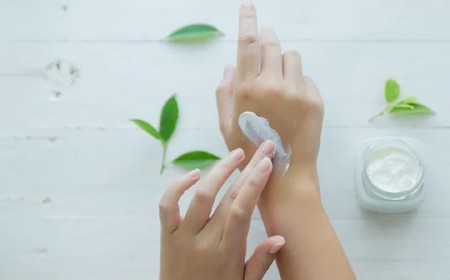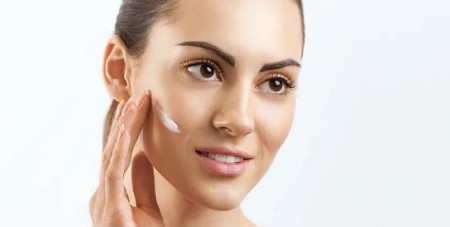Key tips for skin care
Skin care is one of the most important aspects of health and beauty. By following proper skin care methods, you can help maintain the health and youth of your skin. In this article, we will review the steps and key points in skin care.
Knowing your skin type
The first step in skin care is to know your skin type. Skin is usually divided into four categories:
– Dry skin: Lacks moisture and feels tight.
– Oily skin: Over-exfoliates and looks shiny.
– Combination skin: A combination of oily and dry skin in different areas.
– Sensitive skin: Easily irritated and may experience redness and itching.
Cleanse your skin daily
Using a facial wash or foaming cleanser that is appropriate for your skin type will help remove dirt and excess oil. It is recommended to wash your face twice a day (morning and night). For sensitive skin, use gentle, fragrance-free products.
Use a toner
A toner is an important product in your skincare routine. It helps balance your skin’s pH and prepares it for the next steps. Toners containing natural ingredients like rose or aloe vera are great for sensitive and dry skin.
Moisturizer
Using a moisturizer is essential for all skin types. For dry skin, use a rich, creamy moisturizer. For oily skin, non-greasy, lightweight moisturizers are the best choice. A moisturizer helps your skin retain moisture and prevents dryness and premature aging.
Sunscreen
Sunscreen is one of the most important skin care products that should be used every day, even on cloudy days. It protects the skin from UV rays and reduces the risk of skin cancer and premature aging. It is recommended to use sunscreen with an SPF of at least 30 and reapply it every two hours.
Exfoliation
Exfoliation helps remove dead skin cells and improves skin texture. This can be done using chemical exfoliants (containing AHA or BHA) or physical exfoliants. It is recommended to do this once or twice a week.
Get enough sleep
Get enough quality sleep to allow your skin to repair and regenerate itself. Aim for 7 to 9 hours of sleep each night to keep your skin healthy and glowing.
Healthy diet
A balanced diet rich in vitamins and minerals helps keep your skin healthy. Consuming fresh fruits and vegetables, fatty fish (containing omega-3), and drinking plenty of water are all great ways to keep your skin hydrated.
Use face masks
Face masks can help nourish and hydrate your skin. Depending on your skin’s needs, use moisturizing, brightening, or anti-acne masks. You can also try homemade masks, such as honey and yogurt or avocado masks.
Avoiding Bad Habits
Bad habits like smoking and drinking alcohol can damage your skin. Stress can also have a negative impact on your skin health. So, look for stress management methods like meditation or yoga.
Skin Massage
Skin massage is one of the effective ways to improve blood circulation and increase skin clarity and radiance. You can gently massage your skin using natural oils like olive oil or coconut oil. In addition to creating a sense of relaxation, this also helps reduce tension and stress.
Eye Skin Care
The skin around your eyes is thinner and more sensitive than the rest of your face. Using an eye cream that contains caffeine or hyaluronic acid can help reduce puffiness and dark circles under your eyes. Also, gently massage the area around your eyes with your ring finger.

Skin care in different seasons
– Skin care in summer: In this season, it is very important to use sunscreen and light, non-greasy moisturizers. You should also avoid consuming too much sugary fruit juices and fatty foods.
– Skin care in winter: The skin may become dry during this season due to the cold and dry air. Therefore, using richer moisturizers and using a humidifier at home can help maintain skin moisture.
Acne treatment
For people who are facing acne problems, using products containing salicylic acid or benzoyl peroxide can be helpful. Also, avoid touching or squeezing pimples, as this can lead to scarring and infection.
Consultation with a dermatologist
If your skin problems are serious or chronic, consulting a dermatologist can be very helpful. This specialist can give an accurate diagnosis of your skin condition and recommend appropriate treatments.
Taking Skin Supplements
Supplements containing collagen, vitamin C, and hyaluronic acid can help improve skin quality. But it’s best to consult a doctor or nutritionist before starting any supplement.

Avoid products with harmful chemicals
Many skin care products may contain harmful chemicals such as parabens, sulfates, and synthetic fragrances. It is recommended to use natural and organic products to avoid damaging your skin.
Importance of Hydration
It is also very important to hydrate your skin from the inside. Drinking at least 8 glasses of water a day helps to retain moisture in the skin and makes it look fresher and brighter. Also, consuming juicy fruits and vegetables can help provide the skin with the water it needs.
Stress Management
Stress can lead to skin problems such as acne and eczema. Stress management methods such as yoga, meditation, and exercise can help reduce stress and improve skin health.
Stick to a routine
It is very important to be consistent in your skin care routine. By devoting enough time and attention to your skin and following the steps mentioned, you can achieve the desired results. Remember that changes in the skin usually take time and you need to be patient.
Skin Care FAQs
1. Why should I wear sunscreen every day?
Wearing sunscreen daily, even on cloudy days, helps protect my skin from harmful UV rays, which can lead to premature aging, skin blemishes, and an increased risk of skin cancer.
2. How do I know my skin type?
To find out your skin type, you can let your skin air dry for 1 to 2 hours after washing your face. Then:
If your skin feels dry and tight, you have a dry skin type.
If your skin looks shiny and oily, you have an oily skin type.
If your skin is different in different areas (oily and dry areas), you have a combination skin type.
If your skin is easily irritated and gets red and itchy, you have a sensitive skin type.
3. How many times a week should I exfoliate?
It is usually recommended to exfoliate 1-2 times a week. However, if you have sensitive skin, it is better to use a gentler and less frequent exfoliant.
4. Should I use moisturizer even if I have oily skin?
Yes, using moisturizer is essential for all skin types. For oily skin, you can use non-greasy, lightweight moisturizers to prevent dryness and irritation.
5. How can I prevent pimples and acne?
To prevent pimples and acne, cleanse your skin daily, use products containing salicylic acid or benzoyl peroxide, and avoid picking or squeezing pimples.
6. Is it beneficial to use a face mask?
Yes, face masks can help nourish and hydrate the skin. Depending on your skin type, you can use moisturizing, brightening, or acne-fighting masks.
7. Why does getting enough sleep affect your skin?
Getting enough sleep allows your skin to repair and regenerate itself. During sleep, your body releases hormones that help your skin heal, and lack of sleep can lead to dull, tired skin.
8. Are natural skin care products more effective?
Natural products are usually free of harmful chemicals and may be better for people with sensitive skin. But everyone reacts differently to different products, so it’s important to choose products that are right for your skin type.
9. How can I take care of the skin around my eyes?
To take care of the skin around my eyes, use eye creams that contain caffeine or hyaluronic acid. You can also gently massage the area around your eyes with your ring finger to improve circulation.
10. When should I see a dermatologist?
If you are experiencing serious skin problems such as severe acne, sudden changes in skin color or texture, or any unusual irritation, it is best to see a dermatologist.
These questions and answers can help you better understand skin care and choose the right methods.
The bottom line:
Skin care is a comprehensive process that requires attention to detail and the use of the right products. By following this complete guide and keeping the tips in mind, you can breathe new life into your skin and enjoy its natural beauty. Remember that everyone has unique skin, so the best methods and products for you may be different from others.
